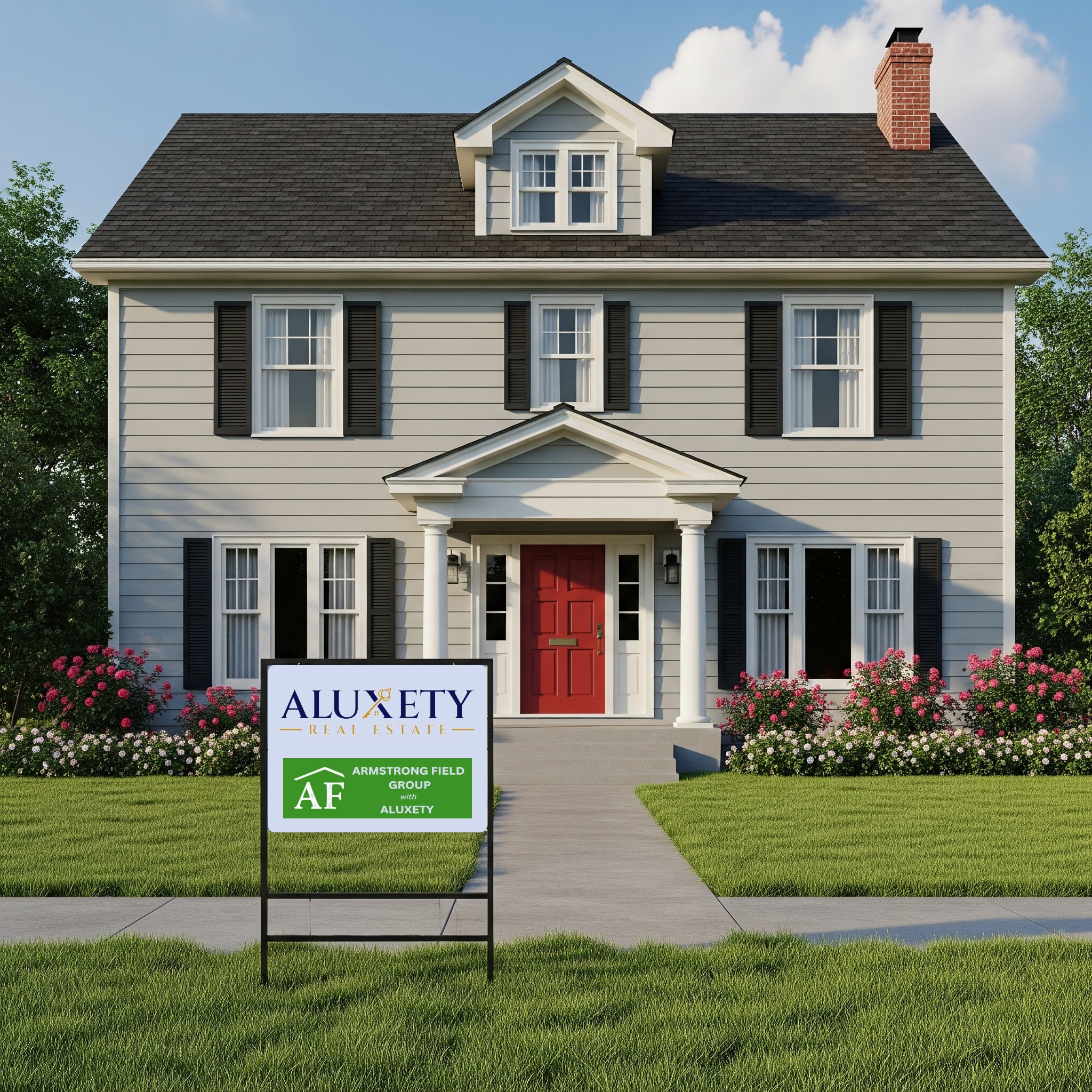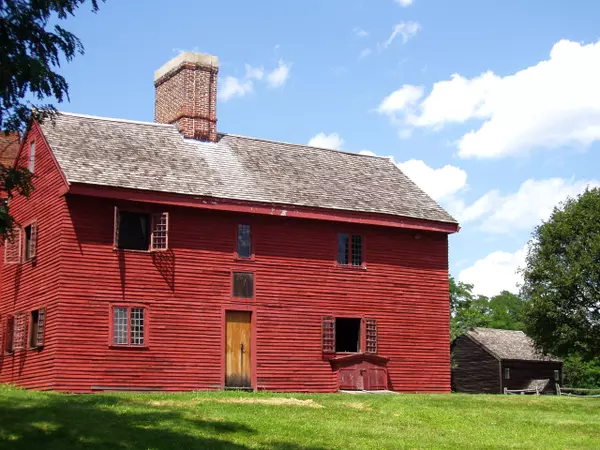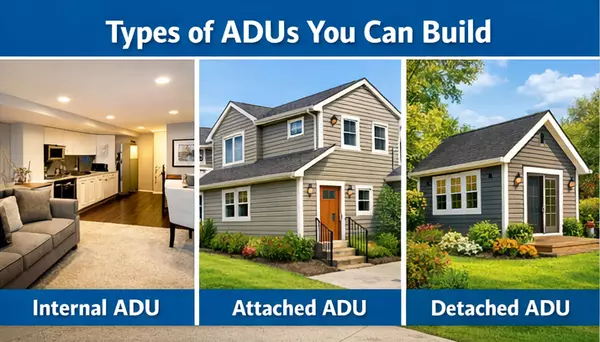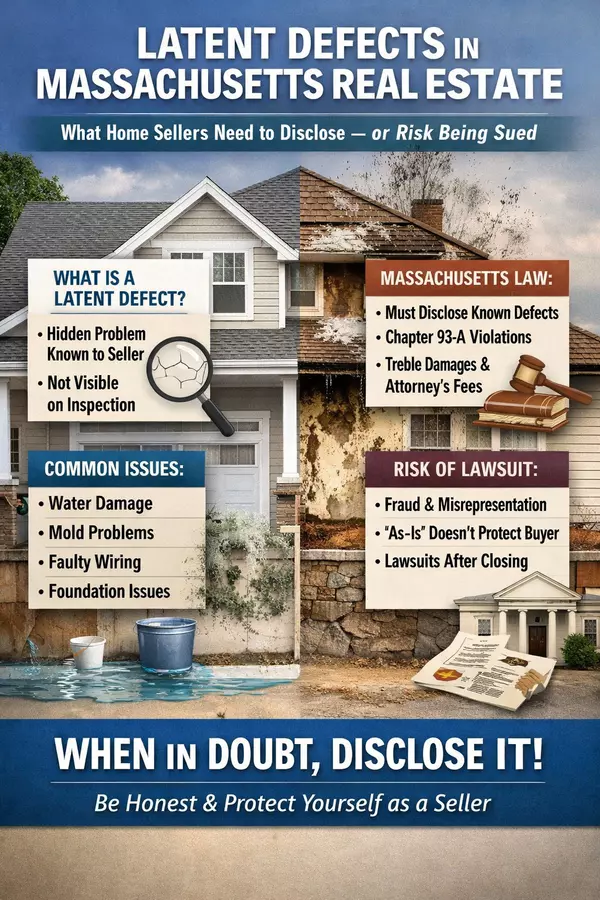Essential Legal Disclosures & Permits for Home Sellers (Salem, MA Edition)

This critical blog post will detail the specific legal obligations and permit considerations for selling a home in Massachusetts, ensuring sellers navigate the process without legal pitfalls.
While Massachusetts is often characterized as a "buyer beware" (caveat emptor) state, the reality for sellers is far more nuanced. Although buyers are expected to conduct their own due diligence, sellers are legally prohibited from lying or hiding the truth if directly asked about the property's condition. Furthermore, all real estate licensees are obligated to disclose known material defects in the real estate. Failure to adhere to these disclosure requirements can lead to severe penalties for sellers, including contract rescission, fraud charges, lawsuits for damages, and the burden of legal fees. This complex legal framework effectively shifts much of the risk back to the seller if known material facts are not disclosed or the property is misrepresented. The substantial penalties for non-compliance mean that transparency is not merely a courtesy but a crucial legal defense against future litigation.
 Mandatory disclosures for Massachusetts sellers include several key areas:
Mandatory disclosures for Massachusetts sellers include several key areas:
- Lead Paint: For homes built before 1978, sellers must disclose any known lead-based paint hazards. This involves providing a "Property Transfer Lead Paint Notification" form and an EPA-approved pamphlet on lead hazards. Non-compliance can result in significant fines, up to $11,000 per error for agents and owners.
- Septic Systems (Title 5): Properties with septic systems require written disclosure to buyers and an inspection within two years prior to the sale. This period can extend to three years if the system is pumped annually and records are available. Copies of the inspection report must be provided to both the buyer and the Board of Health.
- Known Material Defects: Sellers are required to disclose any known flaws that could affect the property's value. This includes issues such as roof damage, water intrusion, mold, HVAC system problems, drainage or flooding history, plumbing issues, and pest infestations like termites.
- Code Violations & Government Restrictions: Any violations of zoning rules, construction breaches, safety codes, or the existence of unrecorded liens must be revealed.
- Environmental Hazards: Known environmental hazards such as radon gas, asbestos, mold, and any history of environmental damage or storm damage must be reported.
Generally, sellers can omit disclosing details such as deaths or suicides on the property (unless they affect its physical condition), the presence of registered sex offenders in the area (as buyers can check public databases), claims of the property being haunted, or previous occupants' HIV/AIDS status.
Navigating unpermitted work requires careful attention. It is legal to sell a house with unpermitted work, provided that this work is fully disclosed in writing to potential buyers. However, selling a property with unpermitted work carries several risks, including potential buyer lawsuits, difficulties for buyers in securing mortgages (as lenders may refuse loans or appraisers may exclude unpermitted square footage), and issues with insurance coverage. Sellers have two primary options: selling "as-is" with full written disclosure, which may necessitate price adjustments or buyer credits and could limit the buyer pool to cash buyers; or obtaining retroactive permits. The latter involves visiting the local permitting office, engaging licensed contractors to bring the work up to code, scheduling inspections, and making any required changes. The town's Inspectional Services (Building Department) handles permits and Certificates of Occupancy, with an online application system available for convenience.
SALEM MA SPECIFIC SELLING GUIDLINES
The intersection of unpermitted work with Salem's identity as a historic city presents a unique challenge for sellers of older properties. Salem has four local historic districts, and any work on properties within these areas requires review by the Salem Historical Commission. If unpermitted work was performed on a historic home, it not only constitutes a permit violation but could also be a breach of historical preservation guidelines. Rectifying such issues might involve not only obtaining retroactive permits but also potentially redoing work to meet historical aesthetic standards, which can be both costly and time-consuming. Buyers interested in historic homes are often highly attuned to authenticity and compliance. This combination significantly amplifies the legal, financial, and marketability risks for sellers of such properties, potentially deterring buyers, impacting appraisals, and leading to more complex negotiations. This underscores the need for sellers to investigate past renovations for both permits and historical compliance, and to be prepared for rigorous buyer scrutiny in these cases.
Salem also has specific zoning and property regulations to consider. Accessory Dwelling Units (ADUs) are allowed by right in certain zoning districts (RC, R1, R2, R3, and NRCC) 31, but require a building permit.32 ADU regulations specify size limitations (cannot exceed 900 square feet or 50% of the primary home size, whichever is smaller, with a minimum of 350 square feet).31 Rental restrictions prohibit short-term rentals, and the owner must reside on the property (either in the primary home or the ADU).31 ADUs cannot be sold separately as condominiums, and utilities for both the ADU and primary home must be on a single service. Non-conforming uses, which refer to properties whose use was once legal but no longer complies with current zoning laws, are another important consideration. A property's "grandfathered" status for a non-conforming use can be lost if the property is abandoned for two or more years or if its use changes substantially. Verifying this status with an attorney is critical to avoid issues during a sale.
Key Massachusetts Seller Disclosures Checklist
- Lead Paint
- Septic System (Title 5)
- Known Material Defects
- Unpermitted Work
- Environmental Hazards
- Code Violations & Government Restrictions
Categories
- All Blogs (99)
- Beverly, MA (4)
- Buying a Home (42)
- Condos For Sale (3)
- Home Ownership (28)
- Homes For Sale (7)
- Living on the North SHore (11)
- Mortgages (4)
- Prospective Real Estate Agents (1)
- Real Estate Careers (8)
- Real Estate Market Conditions (20)
- Real Estate School (1)
- Salem, MA (6)
- Selling a home (49)
Recent Posts












